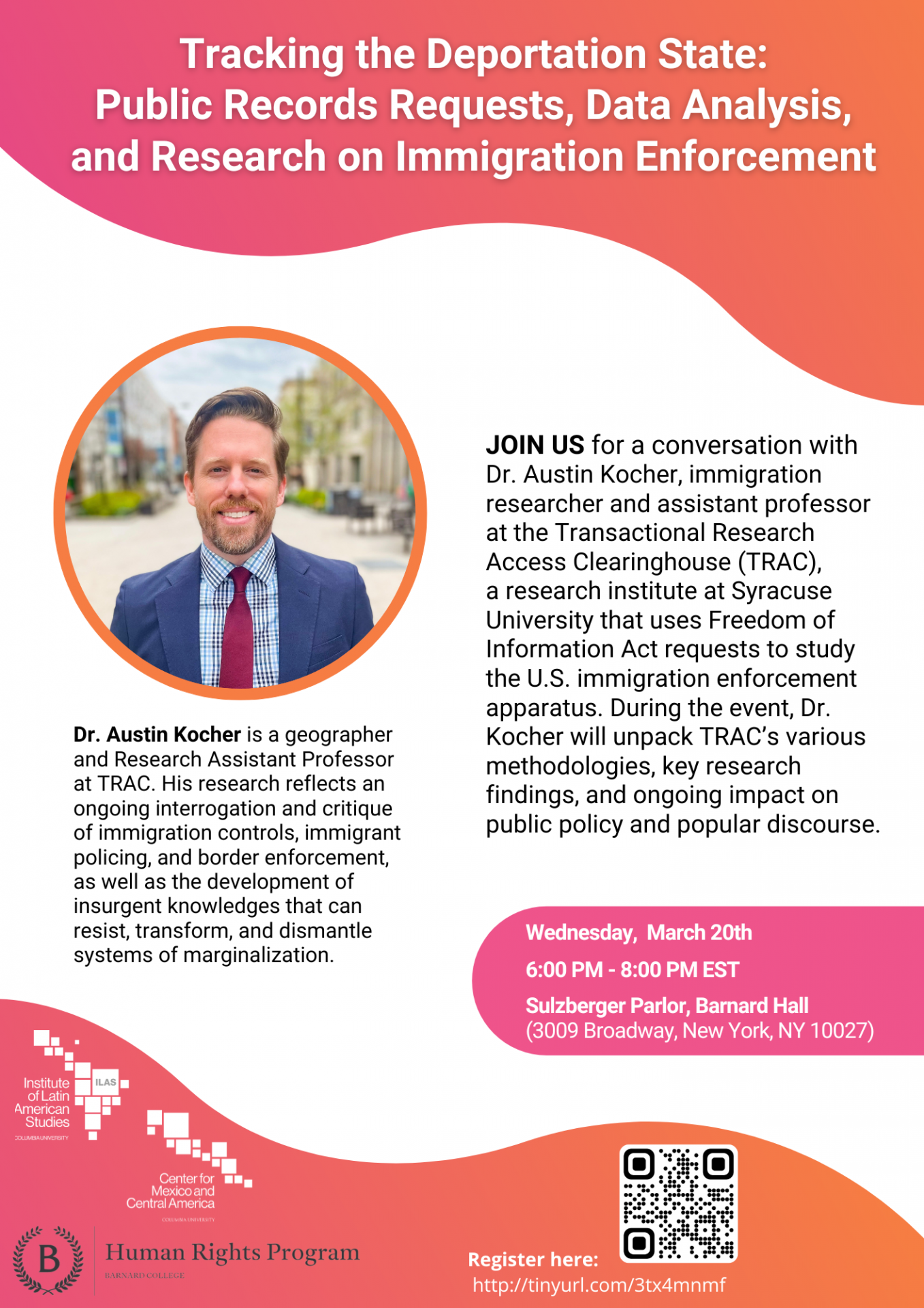Tracking the Deportation State: Public Records Requests, Data Analysis, and Research on Immigration Enforcement
One of the most significant barriers to scholarly research on U.S. border enforcement and immigration control is institutional closure. Closed institutions—such as immigrant detention centers, immigration courts, and ports of entry along the border—create added barriers to researcher access and limit the production of knowledges that might critique, reform, or transform these systems. To challenge institutional closure, TRAC (Transactional Records Access Clearinghouse) at Syracuse University has spent the last 30 years using Freedom of Information Act (FOIA) requests and litigation to make large government datasets on immigration enforcement available to researchers and to the wider public. TRAC’s data provides one-of-a-kind insight into who gets asylum, how many immigrants are detained, and where immigrants facing deportation live—all at a scale that enables multi-disciplinary mix-methods research.
Join us for a conversation with Dr. Austin Kocher, immigration researcher and assistant professor at the Transactional Research Access Clearinghouse (TRAC), a research institute at Syracuse University that uses Freedom of Information Act requests to study the U.S. immigration enforcement apparatus. During the event, Dr. Kocher will unpack TRAC’s various methodologies, key research findings, and ongoing impact on public policy and popular discourse.
Dr. Austin Kocher is a geographer and Research Assistant Professor at TRAC. His research reflects an ongoing interrogation and critique of immigration controls, immigrant policing, and border enforcement, as well as the development of insurgent knowledges that can resist, transform, and dismantle systems of marginalization.
Click here to register.

